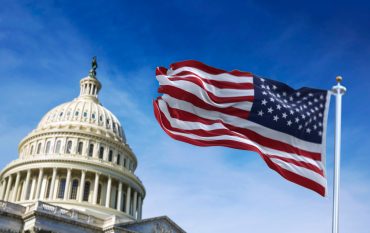
Senate Unveils $4.2 Trillion Tax Cut Plan Extending Business Benefits
5 minute read

Senate tax cut proposal extends business deductions and R&D benefits while raising deficit concerns across financial markets
Key Takeaways
- Dow Jones falls 0.3% (−110 points), S&P 500 remains flat, and Nasdaq edges up 0.1% as investors adopt cautious positioning ahead of earnings from JPMorgan Chase, Citigroup, and Wells Fargo this week.
- Senate proposes $4.2 trillion tax cuts over the next decade through the One Big Beautiful Bill Act, extending and expanding the 2017 Tax Cuts and Jobs Act with permanent business provisions.
- Deficit impact reaches $4.8 trillion if temporary tax cuts become permanent, despite GOP scoring methodology showing only $441 billion through alternative baseline calculations.
Introduction
U.S. markets show mixed performance as earnings season launches alongside major fiscal policy developments on Capitol Hill. The Dow Jones Industrial Average falls 110 points (−0.3%), the S&P 500 closes flat, and the Nasdaq ticks up 0.1%, reflecting investor caution before key financial sector earnings reports.
The market pullback coincides with Senate proposals for sweeping tax legislation that extends corporate-friendly provisions from the 2017 tax reform. Major financial institutions prepare to set the earnings season tone, with results expected to reveal sector health amid persistent inflation concerns and geopolitical uncertainties.
Key Developments
Financial sector earnings dominate the week’s corporate calendar, with JPMorgan Chase, Citigroup, and Wells Fargo leading quarterly reports. These results provide critical insights into banking sector performance and broader economic conditions affecting lending and consumer spending patterns.
The Senate Finance Committee advances the One Big Beautiful Bill Act, proposing to make permanent several business tax provisions set to expire. The legislation includes 100% bonus depreciation for equipment purchases and immediate expensing for research and development costs, targeting technology and manufacturing sectors.
Market Impact
U.S. equity markets show mixed signals, with the Dow slipping modestly, the S&P 500 remaining flat, and the Nasdaq slightly higher — suggesting selective optimism ahead of earnings. The technology-heavy Nasdaq experiences relatively smaller declines, suggesting selective optimism around potential tax benefits for research-intensive companies.
Banking sector stocks face particular scrutiny ahead of quarterly results, with investors monitoring net interest margins and loan loss provisions. The sector’s performance influences broader market sentiment given its economic sensitivity and Federal Reserve policy implications.
Bond markets react to deficit projections from the proposed tax legislation, with Treasury yields reflecting concerns about increased government borrowing needs. The fiscal impact creates additional complexity for Federal Reserve interest rate decisions amid ongoing inflation management efforts.
Strategic Insights
The proposed tax extensions create significant advantages for capital-intensive industries, particularly technology and manufacturing companies. Permanent research and development expensing provisions support long-term innovation investments, while 100% bonus depreciation accelerates equipment purchase decisions.
Corporate tax policy permanency reduces planning uncertainty for business investment decisions. Companies gain clearer visibility for capital allocation strategies, potentially boosting domestic manufacturing and technology development initiatives over the next decade.
The legislation’s deficit impact raises questions about fiscal sustainability and potential future tax policy adjustments. The stark difference between GOP and traditional scoring methodologies highlights ongoing political divisions over fiscal responsibility and economic growth strategies.
Expert Opinions and Data
The Tax Foundation projects the tax package would raise long-run GDP by 0.8%, add nearly 892,000 full-time equivalent jobs, and increase wages by 0.4%. The analysis suggests wage growth of 0.4%, indicating modest but measurable economic benefits from the proposed extensions.
The Joint Committee on Taxation provides contrasting deficit estimates depending on baseline assumptions. Traditional scoring shows $4.2 trillion in deficit increases, rising to $4.8 trillion if temporary provisions become permanent, while GOP-preferred current policy baselines show only $441 billion in fiscal impact.
Fiscal policy analysts express concern about the accounting methodology differences, with critics characterizing the alternative baseline as an “accounting gimmick” that obscures true deficit implications. The revenue impact includes $537 billion in additional income from repealing and scaling back Inflation Reduction Act credits, helping partially offset the cost of the proposed tax cuts.
Conclusion
Markets navigate dual uncertainties from corporate earnings season and major fiscal policy proposals that reshape business tax treatment. The combination of immediate earnings pressures and long-term tax policy changes creates complex investment calculations for portfolio managers and corporate executives.
The Senate’s tax legislation represents the most significant business tax policy shift since 2017, with particular benefits for technology and manufacturing sectors. Current market positioning reflects investor caution about near-term earnings while processing potential long-term fiscal and economic implications from the proposed tax changes.








